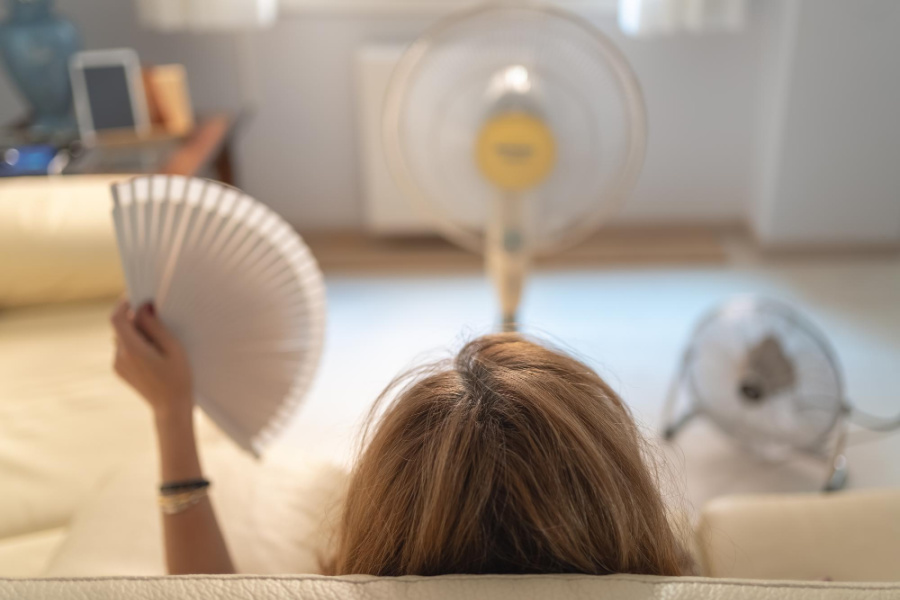[et_pb_section fb_built=”1″ _builder_version=”4.24.2″ _module_preset=”9f8e9e6c-267d-46c8-92c6-78eeac7e24bd” global_colors_info=”{}” theme_builder_area=”post_content”][et_pb_row column_structure=”2_3,1_3″ _builder_version=”4.24.2″ _module_preset=”default” global_colors_info=”{}” theme_builder_area=”post_content”][et_pb_column type=”2_3″ _builder_version=”4.24.2″ _module_preset=”default” global_colors_info=”{}” theme_builder_area=”post_content”][et_pb_text _builder_version=”4.24.2″ _module_preset=”default” global_colors_info=”{}” theme_builder_area=”post_content”]
During the menopausal transition phase, which is often referred to as menopause, there is a significant decrease in the levels of two critical hormones produced by the female body, estrogen and progesterone.
These hormones play vital roles in regulating the menstrual cycle and pregnancy. Their decline leads to the cessation of menstrual periods, signaling the end of the reproductive phase in a woman’s life.
The Role of Estrogen and Progesterone in Menopause
The decrease in estrogen levels during menopause can lead to a variety of symptoms including hot flashes, night sweats, vaginal dryness, and changes in mood.
Estrogen plays a key role in regulating body temperature, so the decrease in estrogen levels can lead to hot flashes and night sweats.
Additionally, estrogen helps to maintain the elasticity and lubrication of the vaginal tissues, so a decrease in estrogen levels can lead to vaginal dryness and discomfort during sex.
Progesterone levels also decrease during menopause, which can contribute to symptoms such as insomnia, mood swings, and irregular periods.
Progesterone plays a role in regulating sleep patterns and mood, so a decrease in progesterone levels can lead to difficulty sleeping and changes in mood.
Understanding Hormonal Imbalance and the Transition of Menopause
The journey through menopause is a significant period in a woman’s life and is often characterized by a variety of physical and emotional changes due to hormonal imbalance.
During this time, the body undergoes significant hormonal shifts, which can lead to a variety of symptoms such as hot flashes, mood swings, and sleep disturbances.
It’s essential to understand these changes, as they can greatly impact one’s daily life and overall well-being. By gaining a deeper comprehension of what’s happening in the body during menopause, women can better prepare for these changes and seek appropriate support and care.
Navigating this crucial transition in life is not something one should have to manage alone, and seeking help and advice from professionals can significantly help to maintain the quality of life.
Remember, menopause is a natural process that all women go through, and with the right knowledge and resources, it can be managed effectively.
[/et_pb_text][et_pb_text ol_position=”outside” ol_item_indent=”54px” ol_item_indent_tablet=”33px” ol_item_indent_phone=”22px” ol_item_indent_last_edited=”on|desktop” _builder_version=”4.24.2″ _module_preset=”default” global_colors_info=”{}” theme_builder_area=”post_content”]
Traditional Medicinal Herbs for Menopause
Wild yam, don quai, chaste berry tree, and holy basil are commonly used in traditional medicine to help balance hormones during menopause. Some potential benefits of using these herbs include:
- Wild yam: Contains precursors to progesterone, which can help balance hormones and reduce symptoms of hormonal imbalance such as hot flashes, mood swings, and insomnia.
- Don quai: Known as the “female ginseng,” don quai is often used to regulate estrogen levels and support hormonal balance. It may help manage symptoms such as hot flashes and night sweats.
- Chaste berry tree: Also known as vitex, chaste berry tree can help regulate the menstrual cycle and balance hormone levels by acting on the pituitary gland. It may help reduce symptoms such as breast tenderness and mood swings.
- Holy basil: Known for its adaptogenic properties, holy basil can help reduce stress and support the body’s response to hormonal fluctuations during menopause. It may also help improve mood and promote overall well-being.
The Role of Natural Remedies and Lifestyle Changes in Managing Menopause
Natural remedies and lifestyle changes can play a significant role in managing the changes and symptoms associated with menopause.
Many women find these alternatives helpful, especially those who prefer not to take hormone replacement therapy or those who experience side effects from such treatments.
Natural remedies, such as the herbs mentioned above, can help balance hormone levels and reduce symptoms. They work by mimicking the effects of the hormones that decrease during menopause, providing the body with natural compounds that can help alleviate symptoms.
However, it’s important to note that these remedies should be used under the guidance of a healthcare professional. Each woman’s experience with menopause is unique, and what works for one may not work for another.
Therefore, it’s crucial to find a tailored approach that suits your individual needs and symptoms.
In addition to natural remedies, lifestyle changes can significantly impact how your body handles menopause.
Lifestyle Changes to Manage Menopause Symptoms
In addition to natural remedies, lifestyle changes can significantly impact how your body handles menopause. Some lifestyle changes that can help manage menopause symptoms include:
- Regular physical activity: Regular exercise can help manage symptoms such as mood swings, sleep disturbances, and weight gain.
- Healthy diet: Eating a balanced diet can help maintain energy levels, support immune function, and mitigate symptoms such as hot flashes.
- Stress management: Techniques such as yoga, meditation, and deep breathing can help manage stress levels, which can impact hormonal balance and menopause symptoms.
- Adequate sleep: Good sleep hygiene can help manage sleep disturbances often associated with menopause.
- Avoid triggers: Certain triggers like caffeine, alcohol, and spicy foods can exacerbate menopause symptoms like hot flashes. Identifying and avoiding these triggers can help manage symptoms.
By combining natural remedies with lifestyle changes, it’s possible to manage the changes that occur during menopause effectively. However, always consult with a healthcare professional to guide you through this transition safely and healthily.
[/et_pb_text][/et_pb_column][et_pb_column type=”1_3″ _builder_version=”4.24.2″ _module_preset=”default” global_colors_info=”{}” theme_builder_area=”post_content”][et_pb_text _builder_version=”4.24.2″ _module_preset=”default” header_3_text_color=”#566051″ background_color=”#F1EEEB” custom_padding=”1rem|1rem|1rem|1rem|true|true” sticky_position=”top” sticky_limit_bottom=”section” hover_enabled=”0″ sticky_position_tablet=”none” sticky_position_phone=”none” sticky_position_last_edited=”on|desktop” border_radii=”on|5px|5px|5px|5px” border_width_all=”1px” box_shadow_style=”preset3″ global_colors_info=”{}” theme_builder_area=”post_content” sticky_enabled=”0″]
Are you interested in the Hormone Balancing Cream I am creating?
Enter your name and email to be the first to know when it goes on sale.
Any questions, email me at in**@*********fs.com
[/et_pb_text][/et_pb_column][/et_pb_row][/et_pb_section]


